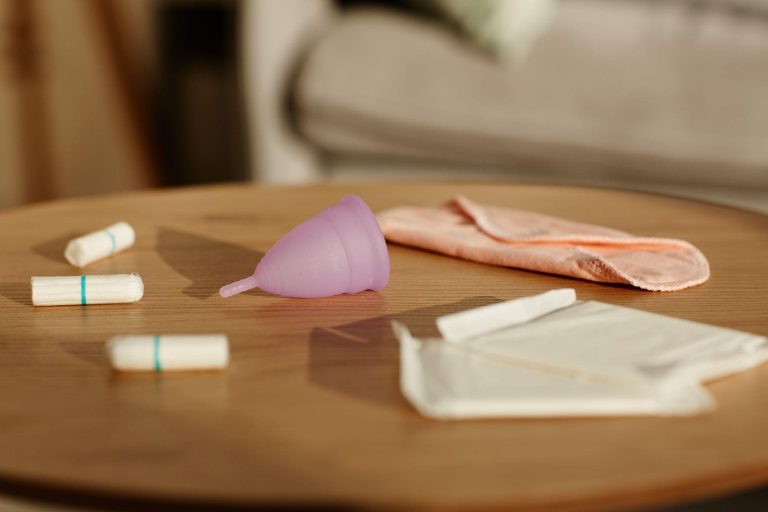Puberty marks the beginning of a new stage in a girl’s life, and it can be overwhelming, especially when it comes to menstrual periods. As a parent, it’s essential to educate your teenager about the importance of proper feminine hygiene. This guide aims to help parents understand the basics of feminine hygiene and provide practical tips on how to support their teenager during this time.
Understanding Menstruation
Menstruation is a natural biological process that occurs when a girl reaches puberty, usually between the ages of 9 and 15. During menstruation, the uterus sheds its lining, leading to the release of blood and tissues. This process typically lasts three to seven days and can be accompanied by cramping, bloating, and mood swings.
It’s crucial to educate your teenager about the basics of menstruation and help them understand the changes their body is going through. Encourage them to keep track of their menstrual cycles using a calendar or period tracking app, so they know when to expect their next period.
Importance of Proper Feminine Hygiene
Proper feminine hygiene is essential to prevent infections and maintain vaginal health. It involves keeping the genital area clean and dry, using menstrual products that are safe and appropriate, and avoiding habits that could cause irritation or infections.
Here are some practical tips on maintaining proper feminine hygiene:
- Washing: Encourage your teenager to wash their genital area regularly with warm water and a gentle, unscented soap. Avoid using harsh soaps, douches, or bubble baths, as these can disrupt the delicate balance of bacteria and yeast in the vagina, leading to infections.
- Drying: After washing, encourage your teenager to pat dry their genital area thoroughly. Avoid using harsh or scented towels, as these can irritate the skin and cause infections.
- Changing menstrual products: It’s crucial to change menstrual products regularly to prevent odors and infections. Encourage your teenager to change tampons every four to eight hours and pads every two to four hours, depending on their flow.
- Choosing the right menstrual products: There are several feminine hygiene products available, including tampons, pads, menstrual cups, and period panties. It’s essential to choose the right product based on your teenager’s individual needs and preferences.
Common Issues and How to Address Them
During puberty, teenagers may experience several menstrual-related issues, such as cramping, bloating, and mood swings. It’s essential to educate your teenager about these common issues and provide practical tips on how to manage them.
- Cramping: Cramping is a common issue during menstruation, caused by the contraction of the uterus. Encourage your teenager to use heat therapy, such as a heating pad, to relieve cramping. Over-the-counter pain relief medication, such as ibuprofen, can also help.
- Bloating: Bloating is a common issue during menstruation, caused by the buildup of gas in the digestive system. Encourage your teenager to eat a healthy diet, rich in fiber and low in salt, to prevent bloating. Drinking plenty of water can also help.
- Mood swings: Hormonal changes during menstruation can lead to mood swings, including irritability, anxiety, and depression. Encourage your teenager to exercise regularly, practice relaxation techniques, such as deep breathing and meditation, and get plenty of rest.
Talking to Your Teenager about Feminine Hygiene
It can be challenging to talk to your teenager about intimate topics like menstruation and feminine hygiene, but it’s an essential conversation to have. Here are some tips to help you start the conversation:
- Choose the right time: Choose a time when you and your teenager are both relaxed and comfortable to have the conversation. Avoid having the conversation in public or when they’re feeling overwhelmed or stressed.
- Be honest and open: Be honest and open with your teenager about the changes their body is going through and the importance of proper feminine hygiene. Encourage them to ask questions and share their concerns.
- Address any misconceptions: There may be several misconceptions about menstrual periods and feminine hygiene, and it’s essential to address these to ensure your teenager has accurate information.
- Make it a positive experience: Make the conversation about feminine hygiene a positive and empowering experience for your teenager. Emphasize the importance of taking care of their body and help them feel confident about managing their menstrual cycles.
Conclusion:
Feminine hygiene is an essential aspect of a teenager’s health, and it’s crucial for parents to educate their teenager about proper hygiene and provide practical tips on managing menstrual cycles. Encourage your teenager to ask questions, share their concerns, and feel empowered about taking care of their body. By having open and honest conversations, you can help your teenager navigate this new stage in their life with confidence and ease.

